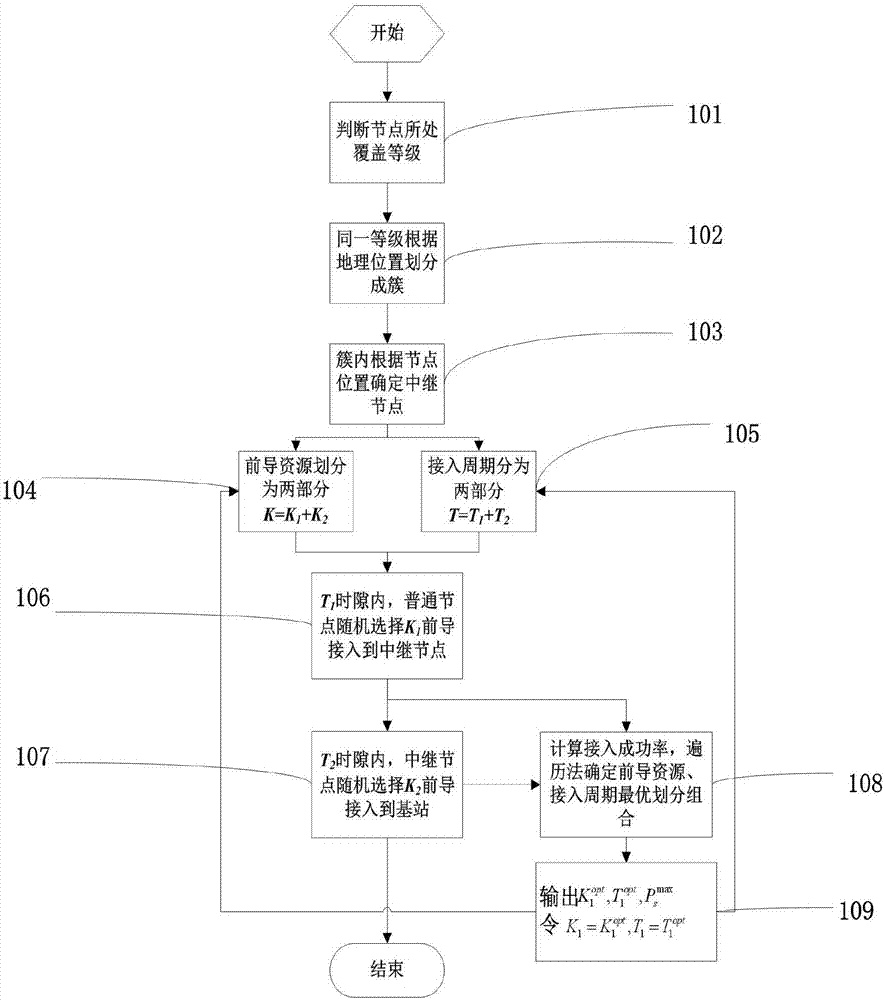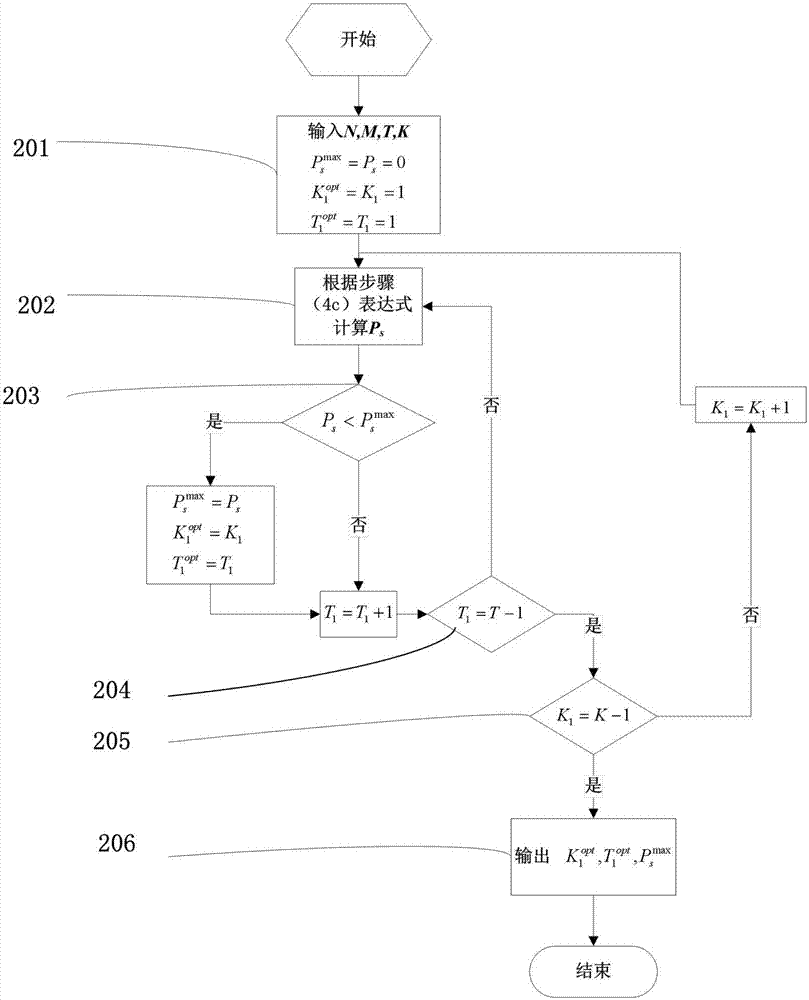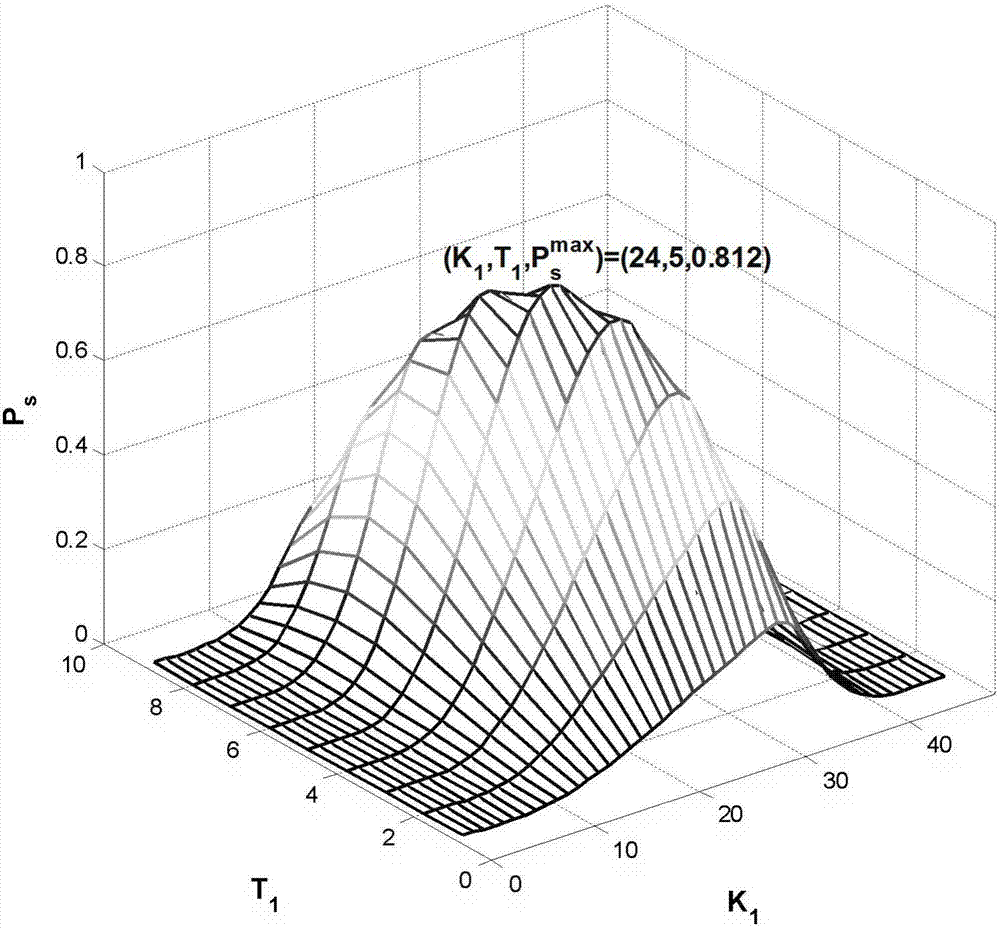Joint node clustering and data caching access method in narrow-band IOT
A narrow-band Internet of Things and data buffering technology, which is applied in pilot signal allocation, digital transmission system, transmission path sub-channel allocation, etc., can solve problems such as access failure, terminal sending random access response, and low access success rate , to achieve the effect of improving the access conflict problem
- Summary
- Abstract
- Description
- Claims
- Application Information
AI Technical Summary
Problems solved by technology
Method used
Image
Examples
Embodiment Construction
[0052] In order to make the object, technical solution and advantages of the present invention clearer, the present invention will be described in detail below with reference to the accompanying drawings and specific embodiments.
[0053] Such as figure 1 As shown, a flow chart of an access method for joint node clustering and data caching in narrowband Internet of Things provided by an embodiment of the present invention, the method includes the following steps:
[0054] (1) According to the coupling loss of the node deployment environment, the nodes are divided into three levels, combined with the spatial location distribution of the nodes, the terminals in the same level are divided into M clusters, and special nodes are selected in each cluster as relay nodes with caching functions , to assist ordinary nodes to access the base station;
[0055] (2), the base station divides the preamble resource and the access time slot according to the clustering situation of the nodes, ...
PUM
 Login to View More
Login to View More Abstract
Description
Claims
Application Information
 Login to View More
Login to View More - R&D
- Intellectual Property
- Life Sciences
- Materials
- Tech Scout
- Unparalleled Data Quality
- Higher Quality Content
- 60% Fewer Hallucinations
Browse by: Latest US Patents, China's latest patents, Technical Efficacy Thesaurus, Application Domain, Technology Topic, Popular Technical Reports.
© 2025 PatSnap. All rights reserved.Legal|Privacy policy|Modern Slavery Act Transparency Statement|Sitemap|About US| Contact US: help@patsnap.com



